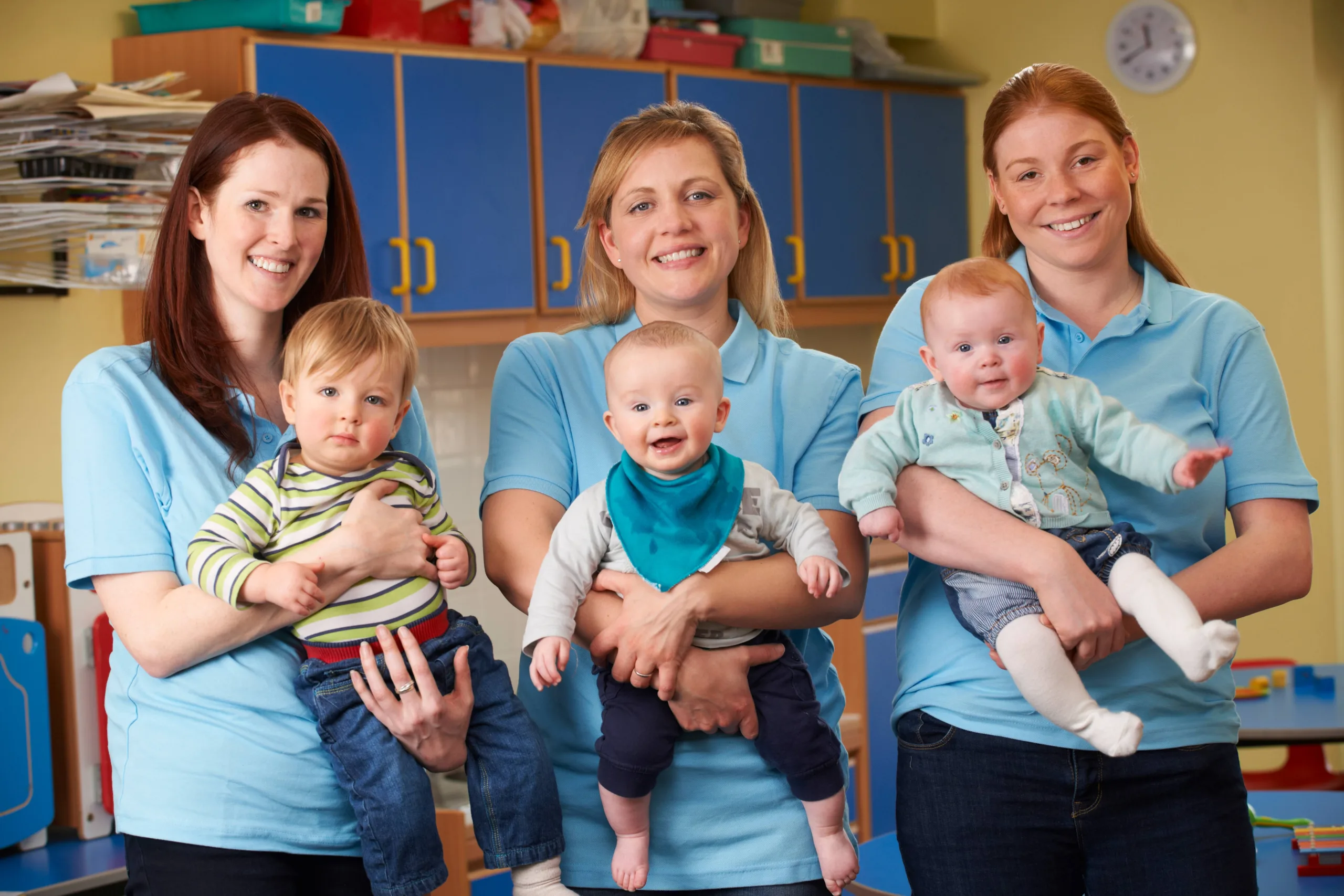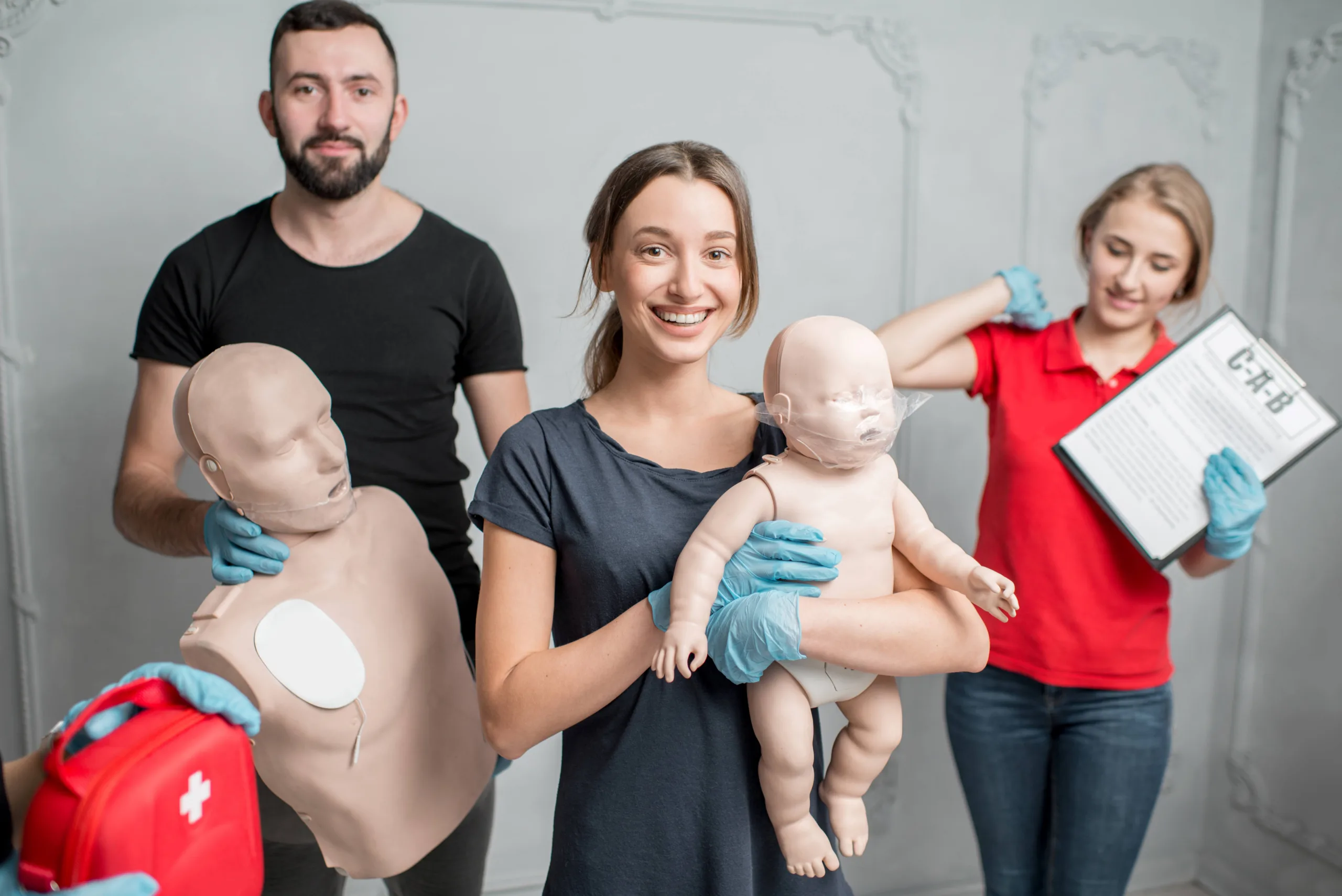With the rising need for professional childcare, the spotlight on who exactly is trusted with this responsibility becomes significantly brighter. In the article “Minimum Requirements For The Daycare Workers You Hire”, you’ll discover the essential qualifications and traits needed for those who look after your precious little ones. From formal education and experience to personal qualities and a genuine love for children, this piece acts as your guide in making that all-important decision. Be prepared to be enlightened on how to ensure that the daycare workers caring for your child meet and surpass your expectations.

Understanding the Importance of Hiring Qualified Daycare Workers
Choosing the right daycare worker is a critical decision as they will greatly influence your child’s early formative years. These early experiences and interactions play a vital part in their cognitive and social development.
The Role of Daycare Workers in Child Development
Daycare workers provide the safe and nurturing environment that children need to learn and grow. They are more than just supervisors; they play an active role in the child’s development by engaging them in stimulating activities that help develop their cognitive, motor, and social skills.
The Impact of High-Quality Daycare on Children
High-quality daycare gives children access to a safe, nurturing, and stimulating environment during their critical early years. Children who attend high-quality daycare show improved cognitive and social capabilities, which help them achieve success in their academic and personal-life milestones.
The Repercussions of Hiring Unqualified Daycare Staff
On the other hand, engaging unqualified daycare staff can have negative effects on your child’s overall growth. Often, these individuals might lack the necessary skills, knowledge, and temperament to effectively manage and instruct young children. This can lead to poor cognitive development, emotional trauma, and other well-being issues in children.
Legal Regulations and Requirements for Daycare Workers
Complying with legal regulations and requirements for daycare workers involves verifying their credentials and ensuring they meet all state and national standards.
Licensing Requirements for Daycare Workers
Licensing typically includes passing state-regulated training and education programs. Before a person can work in a daycare, they must hold a valid state license, ensuring they have the competency to care for children.
How States and Territories Set Education Standards for Child Care Staff
States and territories each establish their own set of educational and training standards for daycare workers, taking into account factors like the type of care setting and the age groups being served. For instance, the requirements for someone leading a classroom in a preschool program may be more rigorous—often involving specific certifications or degrees—while those working as assistants or in smaller, home-based daycare settings might face less formal prerequisites.
The standards also shift depending on the staff position. Directors, lead teachers, aides, and home providers may each have distinct benchmarks they must meet before stepping into their roles. Ultimately, these tailored requirements are designed to ensure that everyone involved in caring for young children is up to the task, no matter the setting or specific responsibilities they hold.
Where To Find Detailed Licensing Requirements
If you’re searching for more comprehensive details about staff qualifications, background checks, or ongoing training mandates, your best resource is often your state’s official licensing agency website. Most state departments of human services or child and family services provide up-to-date information, including downloadable guides and checklists.
Look for dedicated sections specific to early childhood workforce criteria and requirements, or reach out directly to your local childcare licensing office for tailored advice and answers. This ensures you stay current with any recent changes and understand clearly what’s expected for each role within a daycare setting.
How Staff Qualifications Vary by Role and Setting
Qualification requirements for daycare staff aren’t one-size-fits-all—they differ depending on the role an individual holds and the environment in which they’re providing care. For example, a lead teacher working in a large center often needs more advanced training, such as a Child Development Associate (CDA) credential or even a degree in early childhood education. In contrast, assistant staff members or aides in the same setting may only be required to complete basic orientation or on-the-job training.
Similarly, family child care home providers—those caring for children in their own residence—must meet a different standard, which sometimes focuses more on safety training and home environment preparation. The age group served can also influence the necessary qualifications. Infants and toddlers might require caregivers with specialized knowledge in early development, while preschool and school-age children may be cared for by staff trained in group management and age-appropriate curriculum planning.
In short, whether someone is a director, lead teacher, assistant, or home provider, the education level, certifications, and required training are all tailored to their specific role and care setting. This ensures every child receives the most appropriate care for their developmental stage and environment.
Ratio Regulations for Childcare Providers
Ratio regulations stipulate the maximum number of children a single daycare worker can care for at a given time. Abiding by these ratios guarantees that each child receives adequate attention and care.
State and National Regulatory Requirements for Daycare Workers
Daycare providers must meet various state and national regulatory requirements, such as health and safety standards. These requirements ensure the worker’s knowledge of first-aid, disease prevention, diet and nutrition, and more.
Essential Health and Safety Training Topics for Federally Assisted Childcare
When caring for children in daycare settings that receive federal financial assistance, staff are required to complete comprehensive health and safety training. These training topics are designed to prepare caregivers for a wide range of scenarios and ensure the well-being of every child under their supervision. Specifically, the required areas of knowledge include:
-
First Aid and CPR: Providers must demonstrate proficiency in infant and child first aid and CPR, so they’re equipped to act quickly in emergencies.
-
Infection Control: Training covers disease prevention methods, up-to-date immunization practices, and basic hygiene protocols to keep illness at bay.
-
Safe Sleep Guidelines: Staff must understand safe sleep practices to minimize risks like sudden infant death syndrome and other sleep-related dangers.
-
Child Protection: Courses teach how to prevent, spot, and respond to shaken baby incidents, head injuries, and all forms of child abuse and neglect, emphasizing both safety and timely reporting.
-
Medication Management: Caregivers receive instruction on safely administering medicine, strictly adhering to parental consent guidelines.
-
Allergy and Emergency Preparedness: Staff train to prevent and respond to food allergies and other health emergencies, as well as how to handle natural disasters or unexpected events.
-
Hazard Handling: Instruction includes safe storage and disposal of potentially hazardous substances found in a childcare setting.
-
Environmental Safety: Workers learn to identify and minimize indoor and outdoor hazards, such as unsafe playground equipment, water hazards, and traffic exposure.
-
Safe Transportation: When transporting children is part of the routine, caregivers must also train in transportation safety best practices.
-
Foundations of Child Development: Basic understanding of developmental milestones is expected so providers can tailor care to each child’s age and stage.
These federally-mandated trainings underscore the commitment to safety, preparation, and child-centered care in every reputable daycare environment.
Educational Requirements for Daycare Workers
Higher educational qualifications, especially in the field of early childhood education, enable daycare workers to understand and cater to a child’s developmental needs better.
High School Diploma or Equivalent
Daycare workers are often required to have at least a high school diploma or equivalent. This ensures they have a baseline knowledge to assist in a child’s intellectual growth.
Degrees and Certifications in Early Childhood Education
Having a degree or certification in early childhood education is generally preferred when hiring daycare workers. It speaks volumes about their dedication to the profession and showcases their in-depth understanding of child development.
Continuing Education for Daycare Providers
Continuing education in the form of periodic workshops and refresher courses keeps daycare workers updated with the latest knowledge in child psychology, learning methods, and safety protocols.
Prerequisite Skills for Daycare Workers
Daycare workers must possess certain essential skills to handle children effectively, create a conducive learning environment, and deal with any challenges that may arise.
Social and Communication Skills
One must have excellent social and communication skills to work effectively with children. This not only involves speaking clearly and effectively but also listening to and understanding the needs of the children.
Patience and Emotional Stability
Working with children demands a high level of patience and emotional stability. Individuals must remain composed and understanding, even in difficult or stressful situations.
Organizational and Problem-Solving Skills
Maintaining a structured routine for children and solving problems quickly and efficiently is crucial in a daycare environment.
Relevant Work Experience for Daycare Workers
Experience in dealing with children can significantly improve a daycare worker’s efficacy and ability to respond to various situations.
Experience Working with Children
People with previous experience working with children often have a better understanding of children’s needs, are more comfortable in dealing with them, and can manage challenging situations better.
Demonstrable Knowledge of Child Development
Candidates should show a strong understanding of child development stages, as this knowledge is vital to fostering an environment that supports each child’s unique growth requirements.
Record of Positive Interactions with Children
Past records of positive interactions with children are also crucial. These instances signify the daycare worker’s potential to form meaningful relationships with the children in their care.

Health and Safety Training for Daycare Workers
Daycare workers must be well-versed in basic healthcare and safety procedures to safeguard the children in their care.
First Aid and CPR Certification
All daycare workers should have valid First Aid and CPR certifications as these skills can be lifesavers during medical emergencies.
Knowledge of Child Safety and Health Procedures
Understanding child safety and health procedures is vital to avert accidents and contain disease outbreaks effectively.
Understanding of Handling Children’s Specific Health Needs
A qualified daycare worker should also have knowledge about addressing children’s specific health needs such as food allergies, chronic illnesses, and other medical conditions.
Background Checks and Screening for Daycare Workers
Thorough screening to investigate a candidate’s past and history is a key step in hiring daycare workers.
FBI Background Checks
Federal background checks help uncover any criminal history, ensuring the worker does not pose any threat to the children.
State Child Abuse Registry and Criminal Registry Checks
These checks spotlight any incidents of child abuse or criminal activities at the state level.
Drug and Alcohol Screenings
Conducting drug and alcohol screening checks ensures that the daycare worker does not engage in any substance abuse, promoting a safe environment for the children.
Physical Ability Requirements for Daycare Workers
Daycare workers need to be physically active and capable as their job demands a considerable amount of movement and manual tasks.
General Physical Fitness
Staying fit is vital to keep up with the energetic children and carry out various tasks throughout the day.
Ability to Lift and Carry Toddlers
The daycare worker frequently may need to lift and carry children, especially toddlers.
Ability to Engage in Physical Activities with Children
It also involves playing and engaging with the children in various physical activities, so stamina and energy are crucial.

Daycare Workers’ Adherence to Policies and Procedures
Daycare workers must understand and respect the specific policies and procedures of the daycare they work for.
Commitment to Uphold Daycare Rules and Regulations
A steadfast commitment to uphold daycare rules and regulations is paramount. Not only does it portray professionalism, but it also ensures a structured and safe environment for the children.
Understanding of Privacy and Confidentiality Policies
Workers must understand the importance of privacy and confidentiality, not just of children, but also their families.
Willingness to Conform to Disciplinary Policies
Likewise, adhering to disciplinary policies is critical. Even mild discrepancies should be taken seriously.
Assessing the Interpersonal Skills of Daycare Workers
Assessing interpersonal skills in interviews allows employers to evaluate on-the-job behavior and the ability to relate to others.
Ability to Work in a Team
The most effective daycare environments involve teamwork. Hence, the ability to work cohesively in a team is crucial.
Cultural Sensitivity and Inclusivity
In this diverse world, an understanding and acceptance of different cultures and practices are essential. The daycare worker must ensure an inclusive, respectful environment for all.
Interaction Skills with Parents and Families
Lastly, but just as importantly, daycare workers must have effective interaction skills with parents and families. Regularly scheduling meetings to discuss the child’s progress and daily activities keeps parents engaged and informed.
In conclusion, hiring the right daycare worker demands more than just checking qualifications. Even the soft skills and background checks are paramount, ensuring that your child receives quality care and a conducive learning environment.
Picture this: You’re a parent about to entrust your most valuable treasure—your child—to a daycare worker. It’s a decision laced with anxiety and endless considerations. After all, this isn’t just about finding someone who can pass a background check; you’re looking for the kind of person who can engage in a game of peekaboo while understanding the psychological importance of that very game. The truth is, choosing the right daycare worker isn’t just an administrative decision—it’s about finding someone who can shape and nurture the minds of tomorrow.
In today’s childcare landscape, the qualifications for daycare workers have evolved significantly, and rightfully so. Gone are the days when a friendly demeanor and some babysitting experience were enough. Now, the rising demand for professional childcare has intensified the focus on who exactly we trust with this monumental responsibility. It’s akin to casting a lead in a Broadway production—credentials matter, but so does the ability to improvise and handle unpredictable scenes with grace.
Let me tell you a story about a daycare worker named “Jake.” Jake wasn’t bad—he loved kids and had some experience from summer camps—but he lacked the formal training needed for the intricacies of early childhood development. His lack of expertise meant he didn’t always know how to properly handle behavioral issues or engage children in meaningful ways. Over time, the children under Jake’s care showed delays in cognitive development and struggled with emotional regulation. This anecdote is a reminder of what’s at stake when we don’t prioritize hiring qualified workers. The right daycare professional isn’t just keeping your child safe—they are shaping their future.
Think of a daycare worker as a multi-tasking superhero. Sure, they oversee snack time and keep an eye on the sandbox, but what they’re really doing is building the cognitive, social, and motor skills of the children in their care. Remember that scene in Pixar’s Inside Out where we see all the tiny memories being cataloged and filed? A daycare worker plays a role in creating those key moments. Whether it’s teaching a child how to share or encouraging creative play that fosters problem-solving skills, they’re laying down the building blocks of development that will serve a child well into adulthood.
The childcare industry is heavily regulated, and for good reason. State and national requirements ensure that workers are properly trained in everything from first aid to child development. Licensing isn’t just bureaucratic red tape; it’s about ensuring that the person caring for your child can handle an emergency and guide their growth. When a daycare worker has the proper certifications—like CPR or degrees in early childhood education—it’s not just a badge of honor, it’s proof that they have the expertise to keep children safe and engaged.
Credentials can only take you so far, though. As any parent will tell you, some things just can’t be taught. Patience, empathy, and emotional stability are qualities that can make or break a daycare worker. Imagine someone handling five toddlers in full meltdown mode—this requires not just emotional strength but a calm, solution-oriented mindset. And here’s a fun fact: research shows that daycare workers who exude warmth and positive reinforcement foster environments where children are more likely to thrive both socially and academically.
Now, let’s talk about what separates good daycare workers from great ones—health and safety training. You wouldn’t want to send your child to a daycare where workers weren’t prepared for an emergency. First Aid and CPR certifications are non-negotiable; they ensure that in a crisis, your child is in capable hands. Additionally, daycare workers need to know how to prevent accidents and keep up with health protocols—especially in today’s world where hygiene and disease prevention have never been more critical.
Ultimately, finding the right daycare worker is about balancing the professional qualifications with the human element. They need to be part-teacher, part-nurturer, and part-protector. It’s not just about ticking boxes on a checklist, but about finding someone who can positively impact your child’s development in ways that last a lifetime. Just like the perfect recipe requires both the right ingredients and the right chef, your daycare worker should have both the credentials and the heart to give your child the best start possible.

